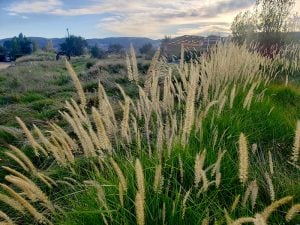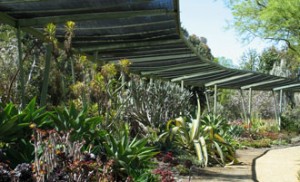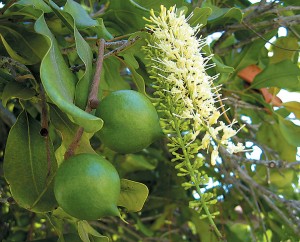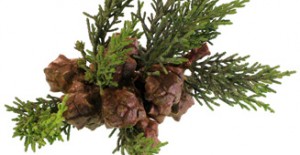The Chilean Flora
Having fallen in love with the diverse flora of Chile, it continues to surprise me—and others in the horticultural world—that there are so few Chilean plants grown in West Coast gardens.
Having fallen in love with the diverse flora of Chile, it continues to surprise me—and others in the horticultural world—that there are so few Chilean plants grown in West Coast gardens.

Traveling for the sake of traveling is fun, but traveling with a purpose becomes an adventure. My adventure, completed in the waning summer months of

The Garden Conservancy and The Ruth Bancroft Garden present a Ruth Bancroft Horticultural Seminar, “Hooray for Shade!”

Landscape architect Ralph Cornell added macadamias to the primary orchard at Llewellyn and Avis Bixby’s Rancho Los Cerritos estate, in Long Beach, California. The secret to success in propagating macadamia cultivars lies in the timing of their grafting.
The genus Eucalyptus is large and diverse, with over 700 species. Many species never exhibit any of the problematic characteristics so commonly, and incorrectly, attributed

Sairus is a life-long tree enthusiast and a passionate gardener. Ron Bracewell’s Trees of Stanford and Environs and Matt Ritter’s A Californian’s Guide to the Trees among Us have been
As a companion to Matt Ritter’s article about trumpet trees (Handroanthus chrysotrichus and H. impetiginosus, formerly Tabebuia spp.), which was featured in the April 2011
As a companion to Matt Ritter’s article about Chile’s soapbark tree (Quillaja saponaria), which was featured in the July 2011 issue of Pacific Horticulture, we

The Urban Tree Key (www.urbantreekey.calpoly.edu) is a resource for identifying the 250 most common urban tree species in California. Simple questions and beautiful, graphic photos